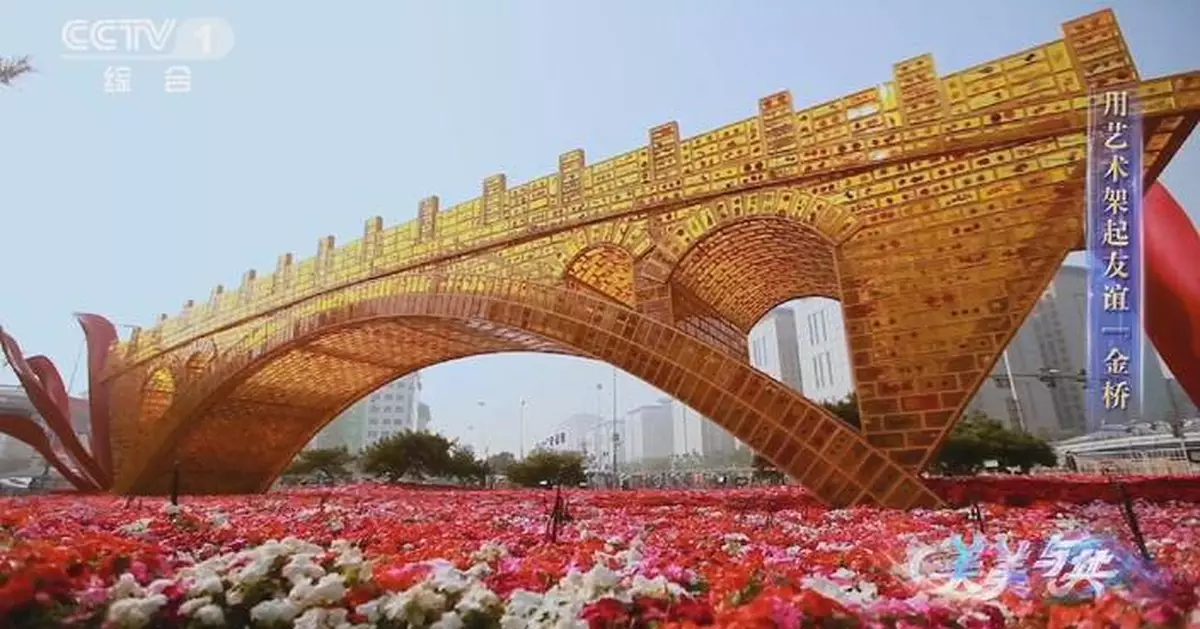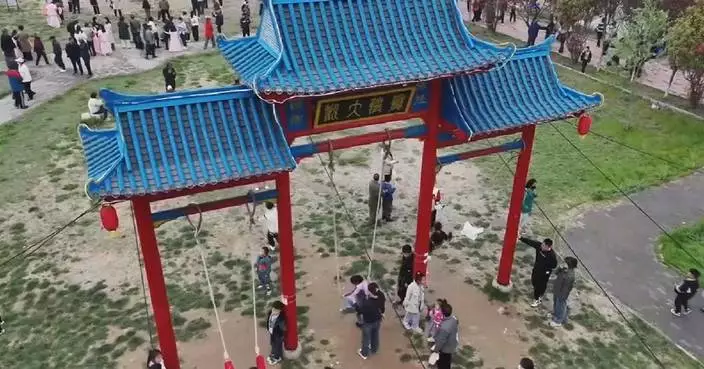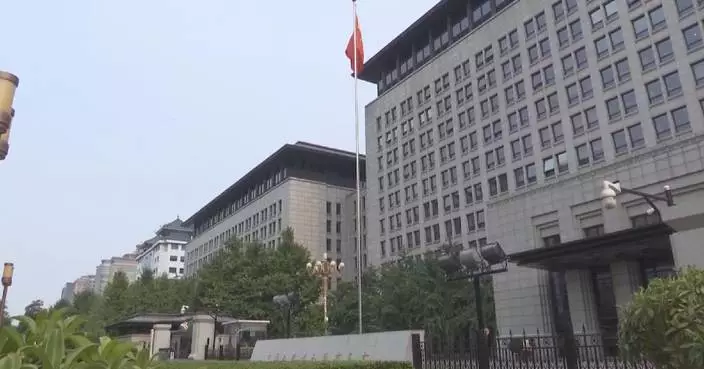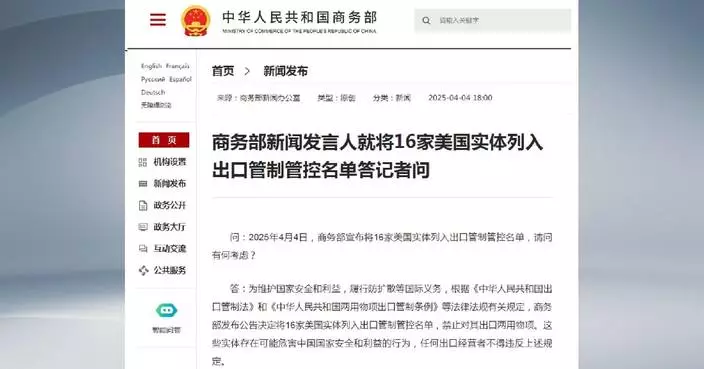A Chinese artist drew inspiration from the ancient Zhaozhou Bridge, which is located in today's Hebei Province in north China, and which has a history of over 1,400 years, in creating an art installation in echo with the Belt and Road Initiative (BRI), showing China's unique philosophy of peace and friendship to the rest of the world.
The art installation, created in 2013 when the BRI was proposed, has been exhibited in many countries and regions, with its traditional Chinese cultural connotations resonating with visitors at the sight of it.
Shu Yong, creator of the artwork named "Golden Bridge on Silk Road," said he made the bridge-shaped installation because a bridge always means connectivity, which would endow his work with a meaning of the bridge between different cultures.
"For thousands of years, there has been a cultural consensus on bridges -- a bridge means connectivity. So, I chose to make it a bridge. Its meaning looks more explicit. Meanwhile, the structure and shape of a bridge bear historic meanings in different countries and different cultures," said Shu in an episode of China Media Group's cultural exchange program "Harmony in Diversity," which was aired on Saturday.
Shu said the Zhaozhou Bridge epitomizes fine traditional Chinese culture both in philosophy and in techniques, and his creative transformation of the cultural landmark has proven accessible to foreign visitors.
"The Zhaozhou Bridge is the oldest stone arch bridge in China, and it is a single-arch bridge. It is a great bridge that is very consistent with Chinese philosophy, science and technology. And when I chose it as a prototype in creating a model, I actually achieved a creative transformation and innovative development of fine traditional Chinese culture. So, it is easy to form a kind of empathy and resonance with everyone. When this model 'Golden Bridge' was exhibited in Europe and other countries, it resonated with everyone in an instant. It tells everyone very directly and clearly that we love peace and play a good role in communication with a bridge," he said.
Besides the Zhaozhou Bridge, Shu also integrated some Great Wall elements into his artwork.
"Meanwhile, each cell of the bridge is the same size as a brick of the Great Wall, integrating the design of Great Wall battlements into it. As the Great Wall is also a prominent cultural symbol of China, it represents unity, struggle and solidarity. So, when it was exhibited abroad, some foreign tourists called it a bridge of peace, a bridge of hearts and a bridge of friendship," he said.
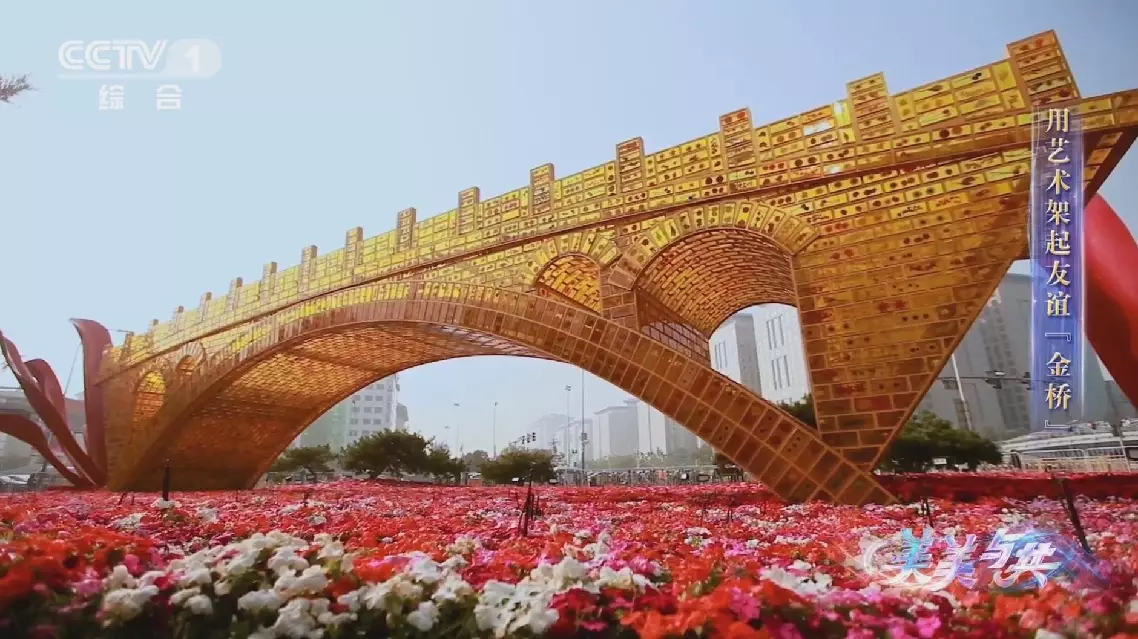
BRI-themed artwork inspired by ancient Zhaozhou Bridge resonates with global visitors
A survey released by CGTN to global netizens shows that respondents strongly condemn the U.S.'s unilateral bullying of other countries under the pretext of "reciprocal tariffs," saying that this move may trigger countermeasures from other countries and eventually evolve into a "tariff world war," seriously impacting the world economy.
The U.S. claims that it has suffered losses in international trade and is raising tariffs on all trading partners under the pretext of "reciprocity," aiming to reduce the trade deficit. However, 81.03 percent of global respondents do not agree with this, believing that such measures will not achieve the expected results. During his first term in office, U.S. President Donald Trump imposed tariffs on major trading partners. According to statistics from the American Action Forum, a think tank, Trump's protectionist policies during the first term cost U.S. consumers about 57 billion U.S. dollars annually. According to the survey, 81.94 percent of respondents believe that "reciprocal tariffs" cannot solve U.S.'s own problems but will only harm the interests of U.S. consumers and drag down the U.S. economic growth.
The competitiveness of products from different countries varies. Each country can set appropriate tariffs based on its own products to achieve "mutual benefit" in the international market. The "tariff farce" of the U.S. side is a selective disregard for the balance of interests reached through multilateral trade negotiations. Some 82.8 percent of the respondents point out that in the context of unequal economic development and economic strength of different countries, the U.S. insistence on full and complete reciprocity in tariffs is extremely irrational.
The majority of the U.S. tariffs this time are targeted at developing countries. Regarding this, 82.96 percent of the respondents condemn the U.S. for conducting "indiscriminate attacks" on other countries on the issue of tariffs, believing that this is a deprivation of the development rights of other countries, especially developing countries. According to the survey, 84.43 percent of the respondents believe that the U.S.'s imposition of "reciprocal tariffs" will exacerbate the problem of trade unfairness with its trading partners and traditional allies, seriously damaging the country's credibility.
As a member of the World Trade Organization (WTO), the U.S. has unilaterally and subjectively introduced so-called "reciprocal tariffs" and insisted on implementing them. This is a typical act of unilateral bullying. In response, 79.47 percent of the respondents criticize the U.S. for seriously violating the rules of the WTO. In the survey, 79.58 percent of the respondents say that "reciprocal tariffs" have become a new tool for the U.S. to promote trade protectionism, which will further intensify international trade tensions and global economic fragmentation.
This survey was released on CGTN's English, Spanish, French, Arabic and Russian platforms. Within 24 hours, a total of 9,600 overseas netizens participated in the survey and expressed their views.
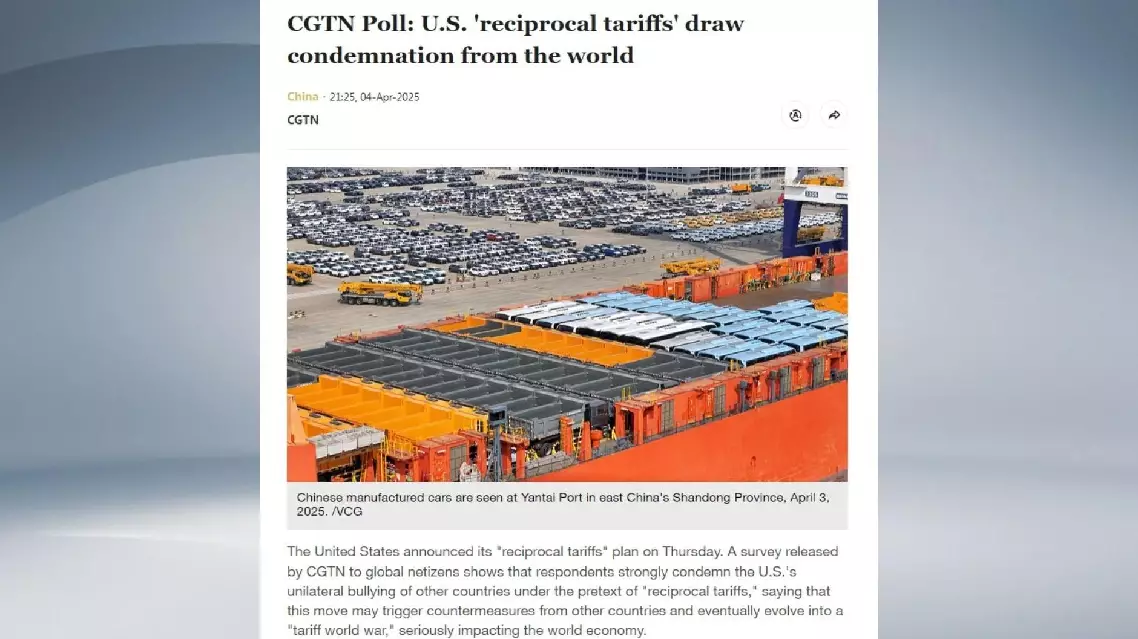
CGTN poll: US 'reciprocal tariffs' draw condemnation from world



